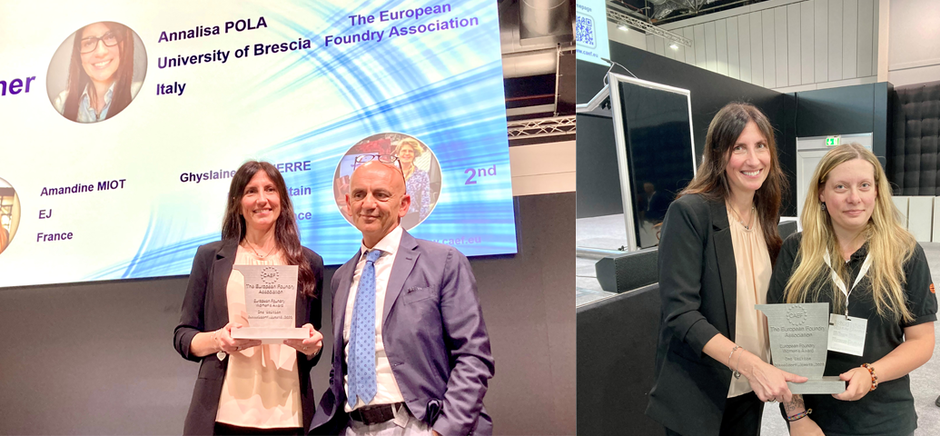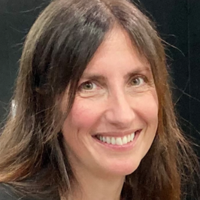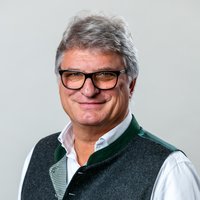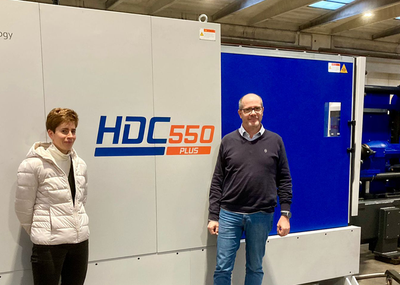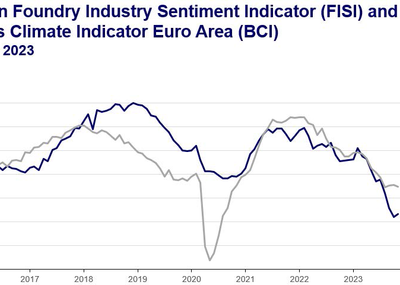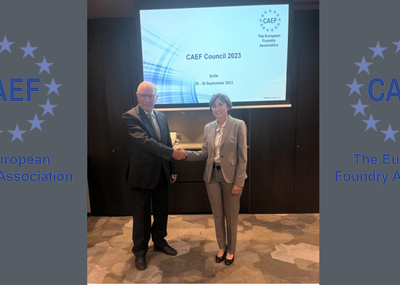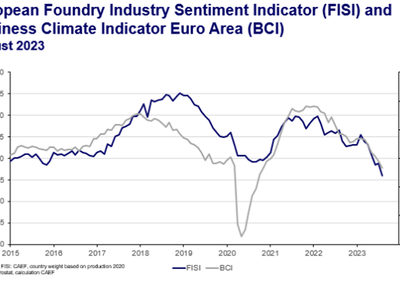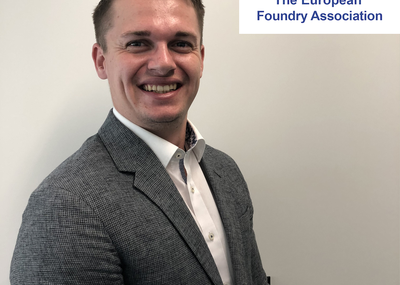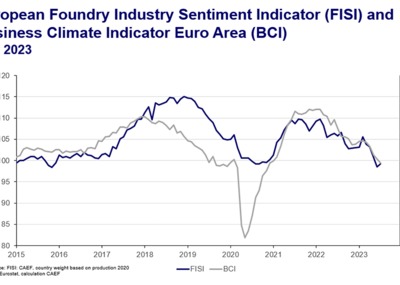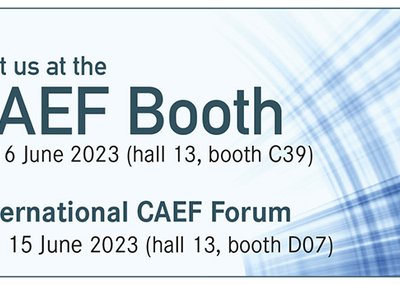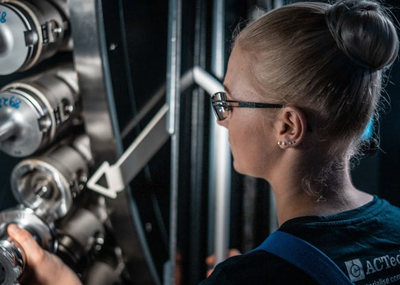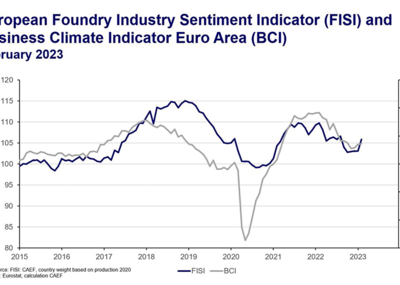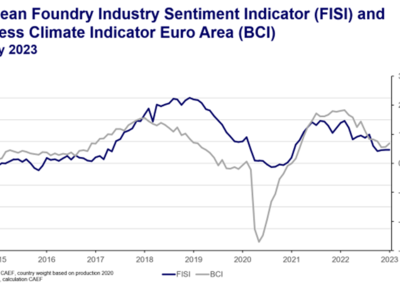The European Foundry Women`s Award 2023 was awarded this year by the jury of CAEF (The European Foundry Association) to Italian professor Annalisa Pola, followed by Amandine Miot of EJ France in 2nd place and Ghyslaine Delpierre, Ferry-Capitain France in 3rd place. During GIFA and Newcast in Düsseldorf in June, the award was presented in a fitting ceremony by Assofond President and CAEF member Roberto Ariotti.
FP: Annalisa, congratulations on receiving this award during GIFA 2023 in Düsseldorf. How important are these recognitions in our days?
Annalisa Pola: Thank you very much, I am really grateful, happy and honored to have received this award which represents for me an important recognition of my passion for research and education in the field of foundry and metallurgy.
I believe that this type of awards is very important, and not only for the person who receives it, whose satisfaction is obviously great, but also for others. In general, every award, but perhaps this more than others given its purpose, can be a stimulus for women working in this sector, and a signal that things are changing and, above all, that there is the willingness to change them.
And I thank the CAEF for having decided to start this project last year, because it is true what they report, i.e. that the integration of everyone’s talent will help to address the important challenges we have to face to transform our industries and economies towards a more sustainable future.
FP: How has the overall position of women in the engineering world changed and where is it developing?
Annalisa Pola: As well known, the exclusion or severe limitation of women's access to technical-scientific studies and professions has ancient social and cultural roots, and definitely engineering is one of those fields considered typically male, especially in certain areas, such as mechanical or information engineering, etc.
Lately (and luckily), however, things have been changing, easily thanks to the breaking down of those social and cultural barriers that kept women away from studying technical topics, but also thanks to a change in the mentality of the industry that does not preclude women from accessing certain positions.
For example, in my country, Italy, the percentage of female students enrolled in STEM faculties has risen to around 25 per cent; the data in other countries are almost similar, somewhere lower somewhere higher, anyway this gives hope for a continuous growth.
Globally, what is still existing is a certain salary gap: women engineers generally earn less than men (85-90%).
But even this I hope will change in the short term thanks to the activities that nowadays are promoted to achieve gender equity in the profession. And the recognition of women's work in some areas, such as that promoted by the CAEF, I think can help in paving the way for these changes.
FP: What do you take away from GIFA and what is the significance of leading trade fairs and where is the foundry industry heading?
Annalisa Pola: Well, trade fairs like GIFA have different purposes, first of all the obvious one of showcasing the latest innovations in the sector at various levels, that is, from equipment to services including education and research. It is also an important opportunity for experts to meet, both customers and competitors, and this is always a motivation for comparison and growth. Even I, although not working directly in the sector being an academic, I had the opportunity to discuss with several specialists and become aware of interesting advances and curiosities that I will certainly transfer to my students during next semester's courses.
The foundry world is experiencing a continuous growth, with innovations in processes, materials, data analysis etc. and I believe that the collaboration with the university for both research and education is of fundamental and mutual importance to achieve ambitious goals.
"Young women should follow their passions and talents and be more involved and encouraged in engineering professions."
FP: Where do you see the most important tasks especially in the university sector?
Annalisa Pola: The relationship between universities and industry, including foundry, has changed a lot in recent years. Collaborations with companies for research but also for education have strongly intensified, although some fear in sharing their know-how with the academic world is still present in many foundries. It is therefore also the task of us academics to convince companies that this exchange of knowledge and the creation of joint projects are necessary to produce innovation and competitiveness, and to educate competent and passionate graduates engineers and technicians oriented to this sector, with obvious consequences for economic growth.
If we now focus on the issue of women in engineering, unfortunately, still few girls choose to pursue studies in technology, and even fewer choose careers in technical fields. Therefore, I believe that one of the aims that the university must set itself is to insist on promoting technical studies towards high school female students, or even before, through various activities, including practical ones (such as internships, etc ..) to convince young women to follow their passions and attitudes and not to see a degree in a technical sector as an impossible achievement that is not worth taking.
FP: Thank you very much for the interview!
Annalisa Pola: Thank you for your time and for the opportunity to thank CAEF again for this award.
About Annalisa Pola:
Full professor in Metallurgy at the Department of Mechanical and Industrial Engineering (DIMI) - University of Brescia where she gives course on “Foundry”, “Light metals”, “Metallic Biomaterials and Coatings” and “Laboratory of simulation of metallurgical processes”.
Her scientific activity is mainly focused on study and characterization of foundry alloys and castings; on the optimization of heat treatments of ferrous and non-ferrous alloys; on the rheological behavior of liquid and semisolid metals; on the investigation of conventional and innovative foundry processes; on the correlations between microstructure and mechanical properties; on simulation of foundry processes; and in the last years also on metal additive manufacturing.

